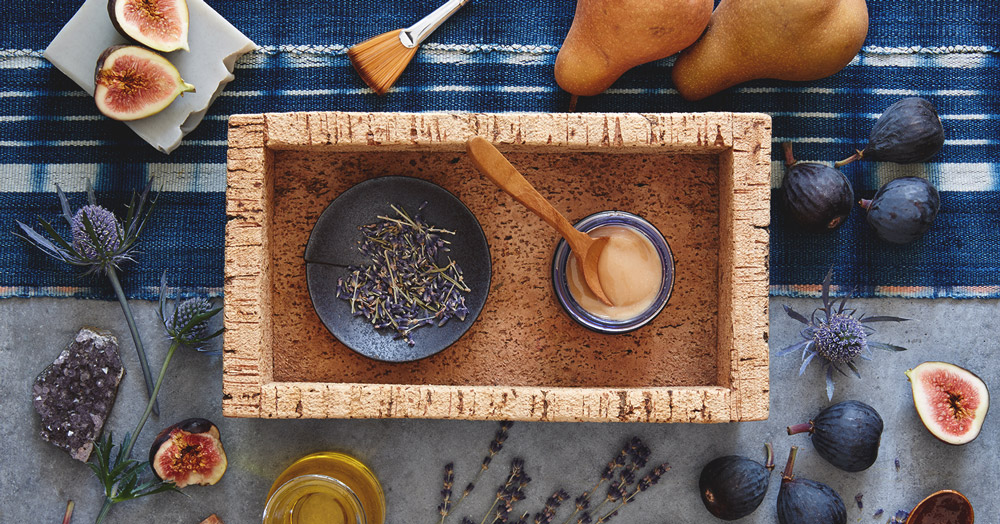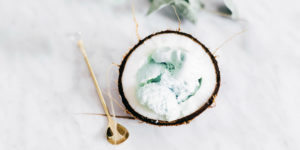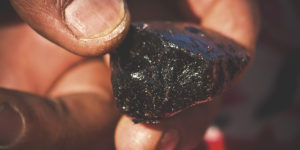The Magical Uses of Plants: 23 Sacred Herbs for Health, Prosperity and Spiritual Protection
BY ARIN MURPHY-HISCOCK
 herbs can do so much more than just add flavor to foods and improve health. they also have magical uses that can help you expand spirituality and do intensely practical things like create more success, prosperity and protection for negative influences.
herbs can do so much more than just add flavor to foods and improve health. they also have magical uses that can help you expand spirituality and do intensely practical things like create more success, prosperity and protection for negative influences.
Generally, a plant referred to as an herb possesses some sort of medicinal, culinary, or magical value. Botanists and gardeners sometimes differentiate herbs from other plants by the stem: if the plant has a “woody” stem above the ground, it’s not an herb but a tree or a shrub. According to this definition, mint is an herb, but rosemary is not.
In the magical and spiritual world, however, the term “herb” is used as a catchall for bits of trees, flowers, spices, and all sorts of plants. Herbs thus form a huge portion of the green witch’s practice. Following the herbs, you’ll find some miscellaneous greens that are also useful (though often overlooked). The following list comprises some aromatic, culinary and magical plants and herbs.1. Allspice (Pimenta officinalis)
Also known as pimento or Jamaica pepper, the dried allspice berry is a common staple in the kitchen spice rack. Called “allspice” because it incorporates flavors such as clove, cinnamon, and pepper, it is a common flavoring for spice cookies. The sweet yet spicy aroma is released when the dried berry is crushed. Allspice berries make wonderful additions to magical herbal blends for money and prosperity and any magic focusing on increasing energy, love, healing, and luck.
Where to Get It: Organic Allspice Powder
2. Angelica (Angelica archangelica)
Also known as archangel or angel’s herb, this fragrant plant has been used throughout the centuries for improving digestion, flavoring wines and liqueurs, and making candy. It is particularly powerful when this magic herb is used for protection and purification.
Where to Get It: Organic Angelica Root Extract
3. Basil (Ocimum basilicum)
Also known as sweet basil and St. Joseph’s Wort, basil is commonly found in spice racks and in kitchen gardens all over Europe and the Americas. It is extremely versatile in the culinary arts and is an excellent all-purpose magical herb as well. Basil is used for prosperity, success, peace, protection, happiness, purification, tranquility, and love.
4. Bay (Laurus nobilis)
Also known as sweet bay and sweet laurel, bay was used to crown the victor of games in ancient Greece and Rome. Bay is magically associated with success, wisdom, and divination. Write a wish on a bay leaf and burn it, or sleep with it under your pillow for dreams that offer some sort of guidance as to how to pursue your goal. (If you burn the bay leaf, make sure your area is well ventilated, for the smoke can be mildly hallucinogenic.)
5. Chamomile (Chamaemelum nobile, Matricaria recutita)
Also known as manzanilla, chamomile (both the Roman and German varieties) is another versatile popular medicinal and magical herb. It is excellent for soothing stomach problems, headaches, and nerves and is an ideal herb to give to children. Magically, it is used for prosperity, peace, healing, harmony, and happiness.
Where to Get It: Organic Chamomile Flowers
6. Calendula (Calendula officinalis)
Although sometimes identified as the pot marigold, calendula is not the common marigold (Tagetes spp.). Calendula is edible, whereas the garden marigold is not. Calendula has been used medicinally to treat skin irritations, such as eczema, bruises, scars, and scrapes. Magically, it is used for happiness, prosperity, love, psychic powers, and harmony.
Where to Get It: Organic Calendula Flowers
7. Cinnamon (Cinnamomum spp.)
Cinnamon is one of the must-have multipurpose herbs in a green witch’s stock. It possesses a great amount of energy, and a pinch can be added to anything to rev up the power level. It is also excellent for spells and charms involving money. Cinnamon is a magical herb for success, action, healing, protection, energy, love, prosperity, and purification.
8. Caraway (Carum carvi)
The seed of the caraway plant is excellent to use for protection against negativity. It’s also a good anti-theft herb, so add some to the garden sachets you place outdoors to keep little animal intruders from nibbling at your plants, as well as in protective sachets or charms in your home. This magical plant is associated with health, mental abilities, protection, fidelity, and antitheft.
9. Clove (Syzygium aromaticum)
The small dried bud of the clove plant is used in cooking, baking, and magic. Magically, clove is associated with protection, purification, mental ability, and healing. Add three cloves to a sachet or charm to tie in protective and purifying energy to keep the charm’s action pure and focused for a longer period of time. A sachet of rosemary, angelica, sage, three cloves, and a pinch of salt tied shut with red thread or ribbon is a good all-purpose sachet to hang above a door or in your car to turn away negativity and protect the area.
10. Comfrey (Symphytum officinale)
Also known as boneset or knitbone, comfrey is renowned as a healing herb. Magically, it is associated with health, healing, protection during travel, and prosperity.
Where to Get It: Wild Comfrey Root Extract
11. Dill (Anethum graveolens)
Also known as dillweed, dill comes in two forms: seed and weed, which is the feathery dried leaves of the plant. Either may be used in green witch work. Dill is considered a magical plant used for good fortune, tranquility, prosperity, lust, and protection.
12. Ginger (Zingiber officinale)
Wild or cultivated, ginger root is an ideal herb to add to rituals and spells because it acts like a booster for the power involved. Like the energy of cinnamon, the heat of the ginger revs up the energy associated with your work. Ginger can also be used to jump-start love, stimulate finances, and increase the potential for success in just about anything. Medicinally, it is used for fighting colds, calming the stomach, and suppressing nausea.
13. Marjoram (Origanum majorana)
Also known as winter sweet, marjoram is similar to oregano, but sweeter and milder. Marjoram was used by the ancient Greeks to crown newly married couples. This magical herb is for protection, happiness, love, and joy, particularly in family environments. (Oregano [Origanum vulgare], a similar herb, is used for love, courage, and action.)
14. Mint (Mentha spp.)
There is a wide variety of green or garden mints, which are versatile herbs to grow in a garden or on the kitchen windowsill. An infusion of the leaves will help ease most headaches, stimulate the appetite, and aid digestion. This magic herb is used for increasing money, success, prosperity, joy, fertility, purification, and love.
15. Mugwort (Artemisia vulgaris)
Also known as artemisia and sailor’s tobacco, mugwort is another ubiquitous witchy herb. A decoction of the leaves is said to help open your mind before you try divination. As a magical herb it is associated with prophetic dreams and divination, relaxation and tranquility, protection, banishing, and consecration.
Where to Get It: Organic Mugwort
16. Nutmeg (Myristica fragrans)
Medicinally, nutmeg quells nausea and soothes digestive problems (although it can be toxic in large doses). Magically, it is associated with psychic abilities, happiness, love, money, and health.
17. Parsley (Petroselinum crispum)
In ancient Greece, parsley was used for such varied purposes as sprinkling on corpses to neutralize the smell of decay and making victors’ crowns to celebrate success. It is magically associated with power, strength, lust, purification, and prosperity. Both the seeds and the leaves can be used
18. Rosemary (Rosmarinus officinalis)
Practical applications of rosemary include use as a skin tonic applied externally and as a hair rinse to add shine to dark hair and soothe itchy scalp. An infusion taken as a tea will help ease a headache. Magical associations include protection, improving memory, wisdom, health, and healing.
19. Sage (Salvia spp.)
Sage is perhaps the herb most commonly used as a magical herb for protection and purification. An infusion taken as a tea will help settle a sour stomach and ease digestion and can help calm anxiety as well. Magical associations include purification and protection, wisdom, health, and long life.
20. Verbena (Verbena officinalis, Verbena spp.)
Also known as vervain, enchanter’s herb, herb of grace, and van van, verbena is an excellent all-purpose herb. Medicinally, an infusion of verbena helps calm headaches, eases stress, and makes a relaxing bedtime tea. Magically versatile, verbena is associated with divination, protection, inspiration, abundance, love, peace, tranquility, healing, prosperity, skill in artistic performance, and the reversal of negative activity. Make a verbena oil by infusing the fresh magical plant in a light olive oil or grapeseed oil to use as a standard blessing/protection oil. Add crumbled verbena leaves to any sachet to round out the positive energies you are drawing together. It is an excellent all-purpose herb to add to any charm bag or spell to encourage success.
Where to Get It: Holistically Balanced Verbena (Vervian) Extract
21. Yarrow (Achillea millefolium)
Also known as milfoil, millefeuille, yarroway, or bloodwort, yarrow is a common garden herb grown for its attractive silvery foliage. The leaves and stem of yarrow, harvested in late summer, have traditionally been used as a poultice to staunch blood. Magically, it is used for courage, healing, and love.
Where to Get It: Wildcrafted Yarrow Extract
22. Moss
Moss is a type of plant that is the first to grow in a seemingly barren area. It’s also tenacious and survives in the oddest places where you wouldn’t think anything could grow. Moss prefers a humid, shady environment, and can and will grow on trees, rocks, dead wood, and soil—anywhere there may be a small crack or gap where particles of soil can collect. It can grow with no apparent place to root whatsoever, which is possible because moss technically does not have roots. Moss absorbs water through its leaves. Because it survives with little maintenance and in improbable locations, moss as a magical plant is associated with perseverance, patience, nurturing, and grounding. Because it is lush even in seemingly inhospitable areas, it’s also associated with serenity and calm.
23. Ferns
Ferns are lovely ethereal plants that range from fragile to remarkably sturdy. They grow in a variety of climates and settings, depending on the genus and species. They’re often associated with invisibility, love, chastity, protection from evil, and unlocking doors.
24. Grass
Grass is so common that most green witches overlook it. Grass isn’t found only on our lawns; it’s also found tall and waving by the roadside or growing through cracks in alleyways or vacant lots. Like moss, it is associated with serenity. Grass also has a quirky humor: if you want it to grow, it will resist, whereas if you try to get rid of it, it will keep popping up. Grass is a trickster. It’s also highly adaptable.
This article on magical herbs and plants for success, money and protection is excerpted with permission from The Green Witch: Your Complete Guide to the Natural Magic of Herbs, Flowers, Essential Oils, and More by Arin Murphy-Hiscock.
About The Author
Arin Murphy-Hiscock is the author of The Way of the Green Witch, The Green Witch, The Way of the Hedge Witch, Pagan Pregnancy, Power Spellcraft for Life, Solitary Wicca for Life, and Birds: A Spiritual Field Guide. She has been active in the field of alternative spirituality for over twenty years, and lives in Montreal, Canada.























